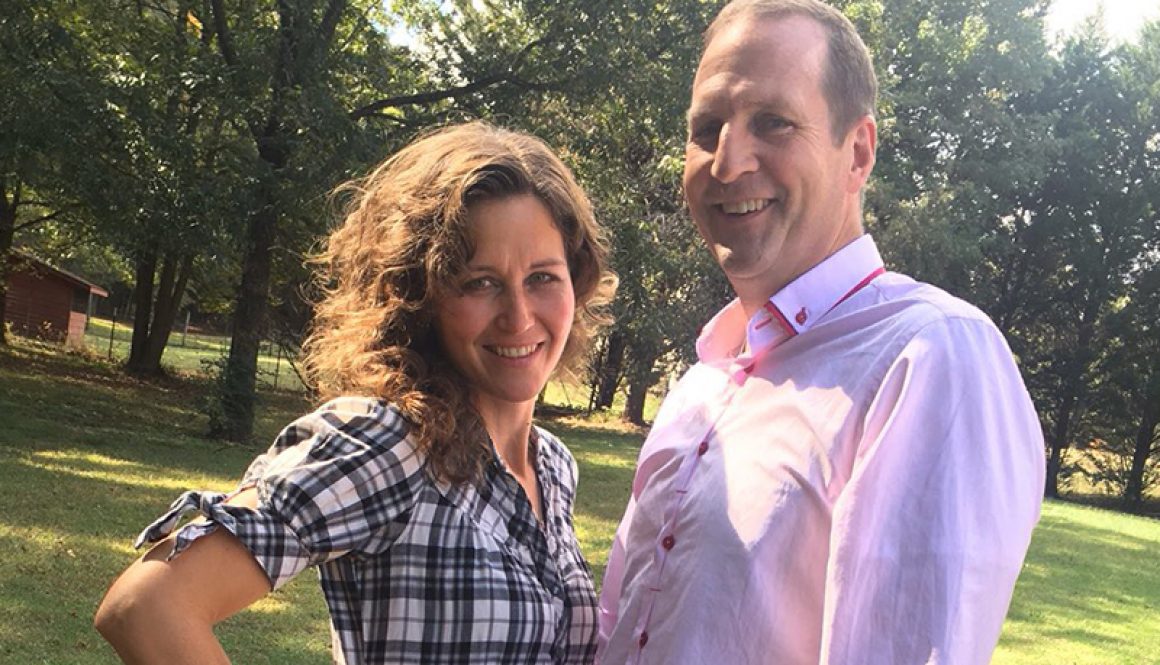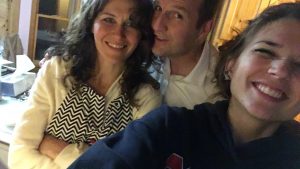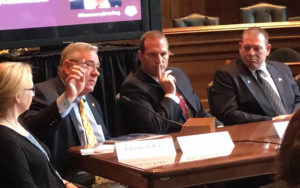MY STORY – ADDICTION AND RECOVERY.
This is My Story – Rich Jones
My name is Richard Jones and this is my story!
When I was “out there” in active addiction I was vaguely aware of what “addiction” was.
My job exposed me to the mental health world as I worked in healthcare. I was not a clinician so my knowledge remained on a superficial level. However, I was aware that the Diagnostic and Statistical Manual (DSM) was the “book” used to diagnose both mental health and substance use disorders.
I had access to these manuals via my “psychiatrist co-workers” in the health system.
On many occasions,
I found myself looking over the criteria for substance abuse and dependency-as it was called at that time; 1998…
- I would read the criteria and read it over and over again.
- I would dissect the words and see if it applied to me.
- I was not living under a bridge or eating out of a dumpster.
- I had not been to jail.
- I was losing my family…but I had not lost my family.
Most of my consequences were internal.
- I was never sleeping.
- I was “dope-sick”/experiencing withdrawal on most days but didn’t really know what was happening to me.
- I was using opioid based pain pills that I was getting prescribed (from several doctors).
- I never bought it off the street.
This allowed me to buy into the concept that “it was from a doctor and couldn’t be that bad”.
- I was always running out early.
- I was always terrified of running out early.
- I had suicidal thoughts.
But no one really knew what was going on with me. Not even my family.
- I was in an internal hell.
But it wasn’t dramatic and
- I wasn’t a “scum-bag, liar, cheater, and thief” of an addict.
- I was a pretty high functioning person who was quietly, yet desperately, dependent on substances to get through the day.
Oh…on a side note: alcohol was ever present and I was probably more dependent on that substance. It was just socially acceptable and therefore I didn’t identify it as the main problem.
The Manual Said
Man… I would look at that Diagnostic Manual and play with the criteria in my mind.
The manual said “inability to control use” was a symptom:
- I would tell myself that really didn’t apply to me because “it wasn’t lack of control.
- I actually wanted to drink 24 beers and eat 10 Percocet… so I was in control…it was my choice”.
The manual said “can’t cut down” was a symptom:
- I would tell myself that I really could cut down if I wanted “I just haven’t decided to yet”…
The manual said “interpersonal problems due to using”:
- I told myself that my wife had an attitude problem and it really wasn’t on me…
And I looked at this manual over and over…and as time went by I had more and more trouble writing it off. But I was always able to do so.
Because I was NEVER TALKING TO ANYONE ABOUT THIS.
I Never Discussed My Substance Use
My mom, my wife, told me to see counselors or “go to AA” and I flat out refused.
- I was clueless as to what was happening to me…
I turned the book upside down to see if it made more sense from a different angle.
- I couldn’t figure it out.
Once I went to an EAP counselor and I was just waiting for her to ask me about my use and give me some answers. But all we talked about was “stress” and “career planning”.
You see…she wasn’t a drug and alcohol “specialist”. So we didn’t go there.
I just simply never discussed my substance use with anyone despite the fact that it was destroying my life. And it got worse and I did temporarily lose my mind and my family and my sense of purpose and my future.
- Why did it have to roll on so long????
- Did I have to “hit bottom”?
- Did I have to “become ready”?
Or
- Would I have benefitted from a conversation.
I Found Recovery
As you can probably assume…I eventually found recovery and went back to school and got a graduate degree in Sociology with concentration in Addiction studies, became a therapist, went back and got an MBA with a concentration in healthcare management.
I jumped through a bunch of hoops a got licenses and certifications.
Started working in the field in 2001—basically as soon as I entered recovery. And I’ve learned a lot. Both personally and professionally.
Based on all this…What do I believe people need to know:
- Substance use disorder. It is a real problem. It’s a brain issue. It’s not bad behavior or just a bad habit. It will get worse and it will not just go away on its own.
- That said…it takes on many different variations. Just like other diseases there are different stages or different “species” of addiction. There is no such thing as a garden variety drug addict—as you so often hear people say. The word addict is demeaning and people say addicts are scumbags and liars and cheaters and thieves. That doesn’t help and it’s not accurate. It’s an individualized experience. Don’t buy into the hype.
- Following logically behind premise number 2–there are multiple ways to “get better”. There is no one prescribed way to recover. It is an individualized experience
- I wish someone would have engaged my family in the process. Families are profoundly impacted and deserve information. Families should be included not removed from the process. Unless their involvement is dangerous for the person needing recovery or for the family members.
- You are allowed to talk to someone without making a commitment to quit everything all together and “never take another drink”. This would have been the most beneficial piece of information for me when I was “out there”. I stayed away from “addiction counselors” for years because I wasn’t going to “quit everything”.
- You don’t automatically need to go to rehab. There is actually a clinical assessment process that indicates level of care. You would never know that based on the media and based on the behavior of some rehab marketers. But rehab is not always necessary.
- There are many people in recovery who did not go to jail and/or ate out of a dumpster. We have allowed ourselves to become caricatures and we promote stereotypes of the scumbag drug addict. I’m sure this chases many people away from recovery. Don’t buy into that… it’s a very diverse crowd.
- There is medicine available that can support recovery. Staying alive is first on the agenda. Don’t let uneducated and uniformed people tell you otherwise. It’s not the only option. But it is an option.
- It may be hard to find people who are willing to meet you where you are at in the process of change. Keep looking. Professionals are wrong when they blindly confront you and prescribe one size fits all solutions. Don’t quit the process based on a bad experience. Find another meeting or another therapist or another program. Be your own advocate.
- If you are using heroin or “pills from the street” (or apparently cocaine)–In today’s world of carfentanil and fentanyl please understand you are playing Russian roulette every time you use. It is better to seek help even if you are “not sure you are ready for recovery” and let a professional help you figure out options…than it is to continue on until you “hit bottom”. Hitting bottom today means death…too often.





